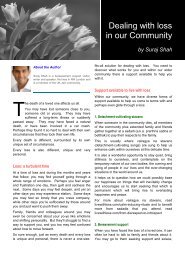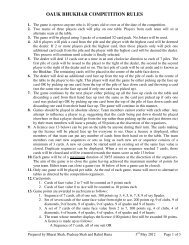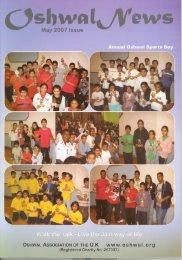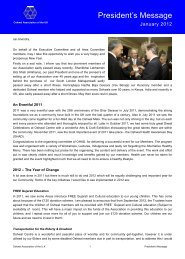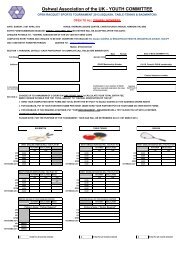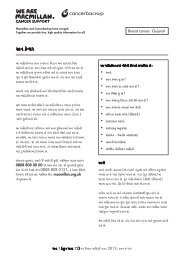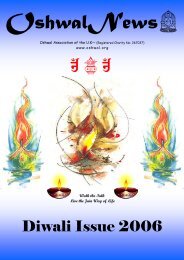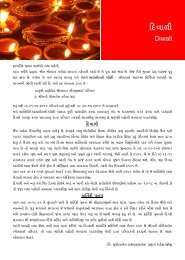First Ever E-Magazine | December 2011 | www ... - Oshwal Centre
First Ever E-Magazine | December 2011 | www ... - Oshwal Centre
First Ever E-Magazine | December 2011 | www ... - Oshwal Centre
- No tags were found...
You also want an ePaper? Increase the reach of your titles
YUMPU automatically turns print PDFs into web optimized ePapers that Google loves.
~ Who looks after Carers? ~Do you know that as a Carer one shouldhave their own Carers Assessment?Adult Carers who are providing in excess of 10 hours ofcare per week for a person aged 18 or over have a rightto a carer’s assessment. Young people caring for an adultfamily member will receive an assessment even if theyare caring for less than 10 hours per week. A carer’sassessment is a s et of questions that will identify howcaring impacts your life .It helps to work out what supportmight be of fered to you. A carer’s assessment can becarried out even when the person you care for refuseshelp or an assessment for themselves.• Help with supported living• Accompanying to lunch or dinner or activitiesOfficials often see all Asian communities as homogenousand yet they are extremely diverse.There are misconceptions about extended family supportthat may not exist; bulk of the caring role is on one or twopeople in the family. “They look after their own” is oftenechoed in discussions about providing services.A direct result of not coming forward and asking for helpis that there are few services developed that suit ourcultural needs.What are the barriers that Carers face?Carers often feel they have a duty for caring and shouldnot complain. Sometimes they struggle on their own andtheir own health suffers and sometimes they faceisolation. Carers who look after people with learningdisability or mental health condition or dementiasometimes find it hard to talk to others about their caringrole. For older Carers, language is often a bar rier andlack of knowledge about whom to approach and how theycan ask for help.Breaks from their caring role make a huge difference inhelping carers to continue – it is not a luxury – for a carerit is essential to their well-being and ability to carry on.And, if they are unable to carry on caring, there willpotentially be enormous care costs.If you're the main carer of the person you're looking after,one way you can look after yourself is by taking anoccasional break from your caring responsibilities this isknown as respite care. Carers can use respite care totake a hol iday or a break, or time off if they're illthemselves. You might take a break for a week, onemorning each week, or just occasionally.A way forwardWe need t o develop a stronger voice and help ourcommunity Carers with support and ad vice. Recentchanges in the way Social Services provide care bymaking it more suited to the individual called“Personalisation or Personal Budgets”. Local Authoritiesare now being encouraged to provide individual budgetsfor people with care needs and f or carers. This meansthat you should be offered choice in the way that servicesare provided, and may be able to use the funding toorganise services yourself. This means people who aredisabled or suffering from long term conditions can planand have a m uch bigger say in the type of care theyreceive.We have a w ealth of knowledge as well as communitymembers who have had to manage the system. If we canharness their expertise for the benefit of all Carers wewould be i n a m uch better position to influence otherservices that are available.Article by,Varsha DodhiaRespite care can include:• Day-respite services, where someone will come intoyour home during the day to care for the person youlook after, giving you a chance to go shopping, meetfriends or have time for yourself.• Residential care in a home for a short period of time• Offer companionship and conversation therebystimulate mental awareness – sitting service• Help with travel arrangements for hospitalappointments and/or assessments<strong>Oshwal</strong> News E-<strong>Magazine</strong> of the O.A.U.K. 12 <strong>December</strong> <strong>2011</strong> Edition




